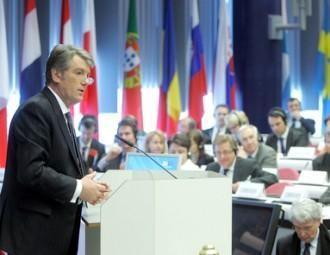Debate on the future of Belarus in European Parliament

Deputy Foreign Minister Jerzy Pomianouski discussed ways to motivate the Belarusan society to change and voice its demands at a conference on the European Dialogue on Modernisation with Belarus.
The conference took place in the European Parliament on Tuesday, April 9.
The Brussels debate was devoted to the operation of the EU instrument called into being in 2012 by Commissioner Stefan Füle. It was intended to assess the Dialogue's achievements and to identify areas in need of improvement. The meeting was initiated by EMP Filip Kaczmarek, Chair of Delegation for relations with Belarus of the European Parliament.
Deputy Minister Pomianouski noted during the debate that the will for change has to come from the Belarusian society, while EU Member States should motivate it to pursue such changes.
"There will be no reforms as long as the people do not express the need to pursue them. We have to do more to engage the Belarusian society so it is ready to discuss them and to voice its demands," said Pomianouski. The Minister also tabled specific ideas on how to broaden the dialogue: "Poland suggests extending the dialogue to include new pillars: projects for local authorities in the area of transport, waste management, adapting the infrastructure to the needs of the disabled, as well as training programmes for social workers in different branches, bank workers, teachers. It would represent a significant step forward.
During the discussion in the European Parliament, Deputy Foreign Minister Jerzy Pomianouski also addressed the attitude represented by the Belarusian authorities.
"I regret the fact that they refuse to engage in the Dialogue together with representatives of the Belarusian civil society. The Dialogue was intended to include everyone in the discussion: opposition members, the civil society, as well as, if possible, government experts," noted the deputy chief of Polish diplomacy.
The deputy minister, who was elected executive director of the European Endowment for Democracy in January, also recalled the role this new instrument plays in the process of democratisation and building the rule of law in Belarus.
The conference in the European Parliament was also attended by Jacek Protasiewicz, Vice-President of the European Parliament, Elmar Brok, Chairman of the European Parliament Committee on Foreign Affairs, Aliaksandr Milinkevich, a Sakharov Prize winner, and members of the Belarusian civil society, including coordinators of working groups of the European Dialogue on Modernisation with Belarus- Andrei Yahorau and Aliaksandr Autushka-Sikorski.
-
03.01
-
07.10
-
22.09
-
17.08
-
12.08
-
30.09








































